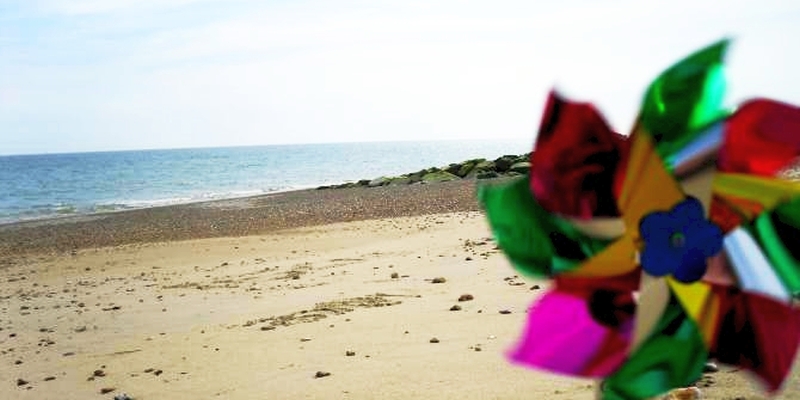
RNLI calls to those rescued from rip currents to help with vital research
An online survey for anyone who has ever been caught in a rip current is being launched today (25 July) by the Royal National Lifeboat Institution (RNLI) to help the charity with potentially lifesaving research.
Rips are strong currents that can quickly drag people out to sea, beyond their depth. They are the major cause of incidents that RNLI lifeguards respond to each year – last year, they accounted for 38% of all sea-based incidents that the charity’s lifeguards responded to.
The charity, working with the University of Plymouth, has created an online survey, which asks information about swimming ability, knowledge and experience of being caught in rip currents – including where the experience took place, and how they reacted and escaped the rip.
The RNLI has been working with the University of Plymouth to carry out research into the physical characteristics of rip currents, to help develop models to predict when and where rip currents are likely to occur.
The online survey will supplement this research, seeking information from people who have experienced being pulled out to sea by a rip, to gain a better understanding of behaviour in rip incidents. The information gathered by the survey will be used to develop future public safety information campaigns.
Adam Wooler, RNLI Head of Coastal Safety and Research, explains:
‘Rip currents are consistently one of the biggest causes of incidents that the RNLI’s lifeguards deal with each year, but very little is currently known about how people react when they become caught in one, which means it’s difficult to know how to educate people to avoid getting caught in one in the first place.
‘The online survey aims to provide more information about people who get caught in rips, what they understand about them and how they respond. Recent studies carried out in Australia have shown that better understanding of how people behave when caught in a rip and how to teach them to avoid rips, is key to reducing the number of incidents and rescues.
‘We’re inviting anyone who has ever experienced a rip current to help us out by taking part in the survey at www.rnli.org.uk/ripsurvey. We hope the results will help us to develop a national public safety information campaign and teach people about how to respond when caught in a rip, to try and reduce the number of incidents.’
For more on RNLI Rip Current Research
Anyone who has been caught in a rip current, and who would like to take part in the survey, should visit www.rnli.org.uk/ripsurvey.
Key facts about the RNLI: The RNLI is the charity that saves lives at sea. Its volunteers provide a 24-hour search and rescue service around the United Kingdom and Republic of Ireland coasts. The RNLI operates over 230 lifeboat stations in the UK and Ireland and has more than 150 lifeguard units on beaches around the UK. The RNLI is independent of Coastguard and government and depends on voluntary donations and legacies to maintain its rescue service. Since the RNLI was founded in 1824 its lifeboat crews and lifeguards have saved over 139,000 lives.





